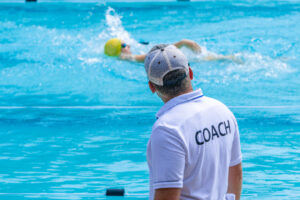The development of expertise, defined as the ability to show high level performance with relative consistency, is a complex multi-determined process. In 1993, Ericsson and colleagues proposed that practice is a key piece of this puzzle, based on their seminal studies on the development of expertise among musicians. They argued that in order to develop expertise in any domain, individuals need to be engaged for about 10 years in quality deliberate practice, defined as effortful practice activities designed to improve performance (Ericsson, Krampe, & Tesch-Römer, 1993).
In sport, studies have generally supported their proposition and shown that a long-term engagement over many years in sport-specific practice is needed for expertise development (Baker & Young, 2014; Baker, Young, Tedesqui, & McCardle, 2020).
There is nothing really new in the idea that developing expertise in sport (or in any domain) takes time, effort, and practice. So, a few questions may come to mind:
 If everyone knows it takes years of practice to develop expertise in sport, why is it that only some athletes will practice with full concentration and effort while others will tend to avoid it?
If everyone knows it takes years of practice to develop expertise in sport, why is it that only some athletes will practice with full concentration and effort while others will tend to avoid it? - Why is it that some athletes persist in their athletic development journey despite several setbacks and challenges, while others quit in the face of adversity?
- Why do very talented athletes sometimes fail to develop into experts while others, who may be initially less skilled, succeed in moving to the highest levels?
- In each of these questions, what distinguishes those two kinds of athletes?
Ericsson and colleagues hinted at part of the answer in their early work. They noted: “Several ‘personality’ factors, such as individual differences in activity levels and emotionality may differentially predispose individuals toward deliberate practice as well as allow these individuals to sustain very high levels of it for extended periods” (Ericsson et al., 1993, p. 393).
Baker and Horton (2004) also stated that “predispositions facilitate the completion of the required amounts of training” (p. 218). In other words, individual differences in personality impact a person’s capacity to work hard and sustain the long-term engagement in deliberate practice that is required for expertise development.
Personality characteristics linked to success in sport
In a comprehensive review, researchers found that personality has an impact on long-term success in sport (Allen et al., 2013). But what do researchers mean by the term “personality” and to which personality characteristics are they referring?
Personality refers to a certain regularity or pattern in someone’s attitudes, their way of thinking, or the way they behave and feel across situations and over time. These relatively stable patterns of thoughts, feelings, and behaviours constitute our personality characteristics or traits (Roberts et al., 2008). For example, if we say that an athlete is “disciplined” or “passionate,” that the coach is “organized” or “very demanding,” or that an athlete’s parent is a “perfectionist,” we are referring to our perceptions of some of their personality traits.

Three personality traits that have been consistently linked to success in several domains are
- Self-control: the ability to control thoughts and emotions, inhibit impulses and resist temptations (Tangney et al., 2004)
- Grit: the tendency to pursue long-term goals with passion and perseverance (Duckworth et al., 2007)
- Conscientiousness: the tendency to control one’s behaviours in the service of personal goals (McCrae & Löckenhoff, 2010)
In a series of studies with athletes from beginner to expert skill levels, my colleague and I systematically tested whether athletes’ levels of self-control, grit, and conscientiousness (along with their more specific sub-traits) were related to athletes’ practice (quantity, quality, and stability), commitment to their sport, and skill level achieved. Here are some of the key findings of these works:
 Athletes scoring high on impulse control (a sub-trait of self-control) and consistency of interests (a sub-trait of grit) thought less about quitting their sport (Tedesqui & Young, 2017a, 2017b)
Athletes scoring high on impulse control (a sub-trait of self-control) and consistency of interests (a sub-trait of grit) thought less about quitting their sport (Tedesqui & Young, 2017a, 2017b)
- Athletes who scored high on perseverance of effort (a sub-trait of grit) accumulated more weekly hours of deliberate practice (Tedesqui & Young, 2017b)
- Those who scored higher on achievement-striving (a sub-trait of conscientiousness) were more likely to engage in optional types of practice (Tedesqui & Young, 2018)
- Expert athletes scored higher on perseverance of effort than less experts (Tedesqui & Young, 2018)
- Athletes high on perseverance of effort also showed a higher and more stable (that is, without fluctuations) practice engagement across one sport season (Tedesqui & Young, 2019)
Identifying (and improving) critical personality traits among athletes
Taken together, these results highlight the critical role of certain personality traits for athlete development. So, how we can identify, within the daily training environment, those athletes who are equipped with such predispositions to work hard and sustain engagement toward their own development?
To find out, my colleague and I interviewed 11 experienced high performance coaches who have trained athletes from national and international levels. Coaches described conscientious athletes as those who are considerate of others and self-regulate to strategically allocate their efforts in training. They described gritty athletes as those who tend to persevere despite adversity, and work hard. They described self-controlled athletes as those who are able to control their impulses and delay gratification (Tedesqui & Young, 2020).
These findings may help coaches and practitioners identify athletes low on those critical traits and who might benefit from interventions aimed at improving patterns of behaviours that have been shown to predict expertise development.
It is important to note that assessments of athletes’ personality by others (as opposed to self-reported measures) should be based on several observations of athletes’ behaviours and not on a one-off assessment.
Final thoughts
Some questions remain unanswered. For example, what strategies do coaches use to help athletes overcome personality-related barriers to their athletic development? And how might the way athletes practice impact their personality throughout their athletic development? As we continue to be astounded by the accomplishments of world-class athletes, we hope that science continues to fill in the gaps in our knowledge of the intriguing links between who these athletes are and what they achieve in their sport.
 Athletes scoring high on impulse control (a sub-trait of self-control) and consistency of interests (a sub-trait of grit) thought less about quitting their sport (
Athletes scoring high on impulse control (a sub-trait of self-control) and consistency of interests (a sub-trait of grit) thought less about quitting their sport (